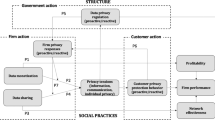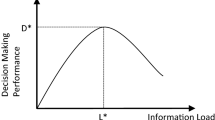Abstract
This article presents an overview of significant issues facing contemporary information professionals. As the world of information continues to grow at unprecedented speed and in unprecedented volume, questions must be faced by information professionals. Will we participate in the worldwide mythology of equal access for all, or will we truly work towards this debatable goal? Will we accept the narrowing of choice for our corresponding increasing diverse clientele? Such questions must be considered in a holistic context and an understanding of the many levels of information inequities is requisite.
Beginning with an historical perspective, Buchanan presents Mustapha Masmoudi's seminal review of forms of information inequities. She then describes qualitative forms of inequities, such as information imperialism and cultural bias embedded in such practices as cataloging and classification. Following, a review of quantitative inequities is presented. Such issues as the growing commoditization of information and information services demand attention from the ethical perspective. And, finally, the Internet and implications surrounding the world-wide dissemination of information is discussed.
The article concludes with an extraction form Richard Sclove's Democracy and Technology, and asks that we as information professionals actively examine the information industry around us and demand a more democratic process within which to work.
Similar content being viewed by others
References
John Agada and Malore Brown. Towards a Networked Community of Africans in the Diaspora: Problems and Prospects. IFLA Journal, 24: 237-244, 1998.
Abdul Alkalimat. The New Technological Imperative in Africa: Class Struggle on the Edge of Third-Wave Revolution, Chap. 15. In Jim Davis, Thomas Hirschel and Michael Stack, editors, Cutting Edge: Technology, Information, Capitalism, and Social Revolution. Verso, London, 1997.
Fahad Al-Nasser. Socio-Psychological Structure of Kuwaiti Society After the Gulf War. Digest of Middle East Studies, 7: 18-36, 1998.
Mohammed Aman. Bibliometric Indicators of the Scholarly Productivity of Researchers and Scientists in Kuwait as Documented by Citations to Their Published Works. Digest of Middle East Studies, 7: 1-17, 1998.
David Bollier. Social Venture Capital for Universal Electronic Communications. Conference Report, 24–25 April, at the Aspen Institute, 1997.
Daniel Bell. The Coming of Post-Industrial Society: A Venture in Social Forecasting. Basic Books, New York, 1973.
David Brin. The Good and the Bad: Outlines of Tomorrow. Information Technology and Libraries, 6: 53-61, 1994.
Richard Cummings. Conversation with Author. In Person Conversation. School of Education, University of Wisconsin-Milwaukee, June, 1996.
A.L. Dick and M. Burger. Transforming Subject Access: Some Critical Issues for South African Information Professionals. In Sanford Berman and James Danky, editors, Alternative Library Literature, 1996–1997. McFarland and Company, Inc. Jefferson, 1998.
Nice Figueiredo. Information as a Tool for Development. International Library Review, 24: 189-201, 1992.
Global Internet Statistics. Available http://www.euromktg.com/globstats/#1, INTERNET, 1998.
Martin Hall. The Virtual University: Education for All, or a Segregated Highway? South African Journal of Science, 94: 147-151, 1998.
Roma Harris. Service Undermined by Technology: An Examination of Gender Relations, Economics, and Ideology. In Sanford Berman and James Danky, editors, Alternative Library Literature, 1996–1997. McFarland and Company, Inc., Jefferson, 1998.
Trevor Haywood. Info-Rich Info-Poor: Access and Exchange in the Global Information Society. Bowker-Saur, London, 1995.
Heather Hudson. Global Information Infrastructure: Eliminating the Distance Barrier. Business Economics, 33: 25-32, 1998.
Grant Kester. Access Denied: Information Policy and the Limits of Liberalism, Chap. 15. In Richard Stichler and Robert Hauptman, editors, Ethics, Information, and Technology. McFarland, Jefferson, 1998.
Fritz Machlup. The Production and Distribution of Knowledge in the United States. Princeton University Press, Princeton, 1962.
Mustapha Masmoudi. The New World Information Order. Journal of Communications (Spring): 172-185, 1979.
Michael Menou. Cultural Barriers to the International Transfer of Information. Information Processing and Management, 19: 121-129, 1983.
Ward Morehouse. Separate, Unequal, but More Autonomous: Technology, Equity, and World Order in the Millennial Transition. Institute for World Order, Inc., New York, 1981.
Vincent Mosco. Myths Along the Information Highway. In Sanford Berman and James Danky, editors, Alternative Library Literature, 1996–1997. McFarland and Company, Inc., Jefferson, 1998.
National Telecommunications and Information Infrastructure. Falling Through the Net II: New Data on the Digital Divide. Available http://www.ntia.gov/ntiahome/net2/falling.html INTERNET, 1998.
Nicholas Negroponte. Pluralistic, Not Imperialistic. Wired (March): 216, 1996.
Thomas Novak and Donna Hoffman. Bridging the Digital Divide: The Impact of Race on Computer Access and Internet Use. Science, 280: 390-391, 1998.
Richard Sclove. Democracy and Technology. Guilford, New York, 1995.
Herbert Schiller. Culture, Inc: The Corporate Takeover of Public Expression. Oxford University Press, New York, 1989.
Andrew Shapiro. Is the Net Democratic? Yes — and no. In Berkman Center for Internet and Society [electronic bulletin board]. Available from http://cyber.harvard.edu/shapiro-world.html INTERNET, 1998.
Leslie H. Steeves. Sharing Information in Kenya: Communication and Information Policy Considerations and Consequences for Rural Women. Gazette, 56: 157-181, 1996.
Alvin Toffler. The Third Wave. Morrow, New York, 1980.
Brian R. Woodrow. 1989. Telecommunications and Information Networks: Growing International Tensions and their Underlying Causes. The Information Society, 6: 117-125, 1989.
L.B. Woods, Tamie Willis, Dan Chandler, Beth Manois and Paula Wolfe. International Relations and the Spread of Information Worldwide. International Library Review, 23: 91-101, 1991.
World Bank. Transforming the Way We Live and Work. International Telecommunications (October 3): 1-2, 1995.
Tevor Young. Information, Ideology, and Political Reality: Against Toeffler, Chap XX. In Jennifer Daryl Slack and Fred Fejes, editors, The Ideology of the Information Age. Ablex, Norwood, 1987.
Elia Zureik. Values, Social Organization and Technology Change in the Arab World. In Ahmed Zahlan, editor, Technology Transfer in the Arab World. Pergamom Press, Oxford, 1978.
Author information
Authors and Affiliations
Rights and permissions
About this article
Cite this article
Buchanan, E.A. An overview of information ethics issues in a world-wide context. Ethics and Information Technology 1, 193–201 (1999). https://doi.org/10.1023/A:1010072815391
Issue Date:
DOI: https://doi.org/10.1023/A:1010072815391




